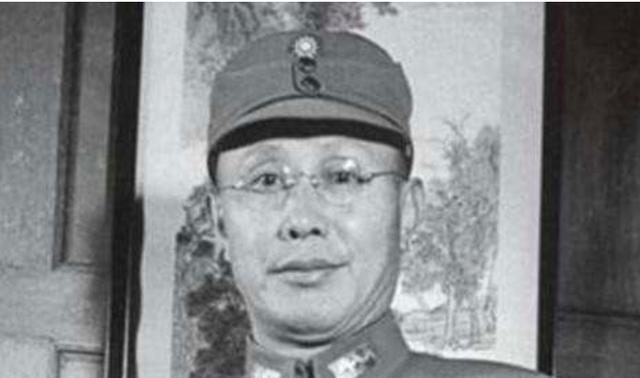Text/Kingdom Building
Adjutant (aide-de-camp), from the Northern Song Dynasty to the Ming and Qing dynasties, refers to the subordinates of the chief officials of local administrative organs. For example, the subordinate officials of the prefect are judged, the subordinate officials of the zhizhou are the same, and the subordinate officials of the county order are the county clerks. Although these deputy posts are of lower rank than the chief officer, they have considerable authority, and when the chief official is vacant, he presides over local government affairs on behalf of the chief official according to the law. However, after arriving in the Republic of China, the adjutant became the personal secretary of the military official and received the corresponding rank and treatment. Below, Xiaobian will talk to you about the legendary lieutenants of those military and political officers in the Republic of China period.
01. Chiang Kai-shek, Sun Yat-sen's adjutant
At the end of 1917, Chiang Kai-shek, who had fled to Japan because of Tao Chengzhang's assassination, went to the Guangdong Revolutionary Military Government to serve as a personal aide-de-camp of Sun Yat-sen, the Grand Marshal of the Army, Navy and Air Force, under the introduction of Zhang Jingjiang, an elder of the Kuomintang, with the rank of major general. Later, due to changes in the political situation, Chiang Kai-shek was displaced, but his loyalty to Sun Yat-sen remained unchanged.
In 1922, Chen Jiongming launched a coup d'état and shelled the Presidential Palace, and Sun Yat-sen took refuge in the Zhongshan ship. Chiang Kai-shek accompanied Sun Yat-sen for more than 40 days as an aide-de-camp, during which he was also responsible for directing soldiers to fight against the rebels, winning the trust of Dr. Sun Yat-sen. After quelling Chen Jiongming's rebellion, Chiang Kai-shek was immediately reused, and for a time he served as the president of the Whampoa Military Academy and the commander of the First Army of the National Revolutionary Army, ranking among the core of power.

02. Huang Xing's adjutant Gu Zhenglun
When the Xinhai Revolution broke out in 1911, Gu Zhenglun volunteered as an aide-de-camp to Huang Xing, commander-in-chief of the rebel forces, as a major in the army.
After the founding of the Republic of China, Huang Xing gradually lost power for various reasons, and Gu Zhenglun also defected to Chiang Kai-shek and became the founder of China's modern gendarmerie system, known as the "father of China's gendarmes" by posterity.
Gu Zhenglun served as the principal of the Gendarmerie School of the National Government, the chairman of Gansu Province, and the chairman of Guizhou Province. During his tenure, he invented the method of not allowing belts to prevent the captured general Chen Geng from escaping, and was despised by the Huangpu generals.
03. Zhang Xueliang's adjutants Lu Zhengcao and Wan Yi
General Zhang Xueliang had more lieutenants, more than a dozen with names and surnames, but among the many lieutenants, there were two more prominent. One is the founding general Lu Zhengcao, and the other is the founding lieutenant general Wan Yi.
After graduating from the Northeast Lecture Hall in 1923, General Lü Zhengcao served as Zhang Xueliang's aide-de-camp until he was promoted to chief of staff of the 16th Brigade of the 116th Division of the Northeast Army in 1929, and accompanied the young marshal for 6 years. After the Xi'an Incident, he joined the revolutionary ranks. In 1955, he was awarded the rank of general by the Central Military Commission.
General Wan Yi began serving as Lieutenant Zhang Xueliang's aide-de-camp in 1926. After the "918 Incident" in 1931, he accompanied Zhang Xueliang to Nanjing to become the deputy commander-in-chief of the sea, land and air force. He secretly joined the revolutionary ranks in 1938. He was awarded the rank of lieutenant general in 1955.
04. Hu Zongnan's adjutant Xiong Xianghui
Xiong Xianghui graduated from the 14th class of the Whampoa Military Academy. From 1937 to 1948, he served as an aide-de-camp to Hu Zongnan, the "King of the Northwest", and was promoted from lieutenant to lieutenant colonel. During the civil war, it contributed to the people's liberation army's defeat of Hu Zongnan's reactionary clique.
05. Jiang Fangzhen's adjutant Jiang Weiguo
In 1936, the Nationalist government sent General Jiang Fangzhen as the representative of the Chinese military delegation to Germany for military inspection. In order to show respect for General Chiang Fangzhen, at chiang kai-shek's behest, the Ministry of National Defense appointed Lieutenant Jiang Weiguo as General Jiang Fangzhen's aide-de-camp. After jiang Weiguo stayed in Germany to study military affairs, majoring in armored tank combat command, he became an expert in the kuomintang armored forces.
After the Kuomintang was defeated and fled to Taiwan, Jiang Weiguo served as the commander of Taiwan's armored forces, the president of the University of the Three Services, and the commander-in-chief of the joint logistics, with the rank of second-class general of the army.
06. Zhou Enlai's adjutant Long Feihu
During the War of Resistance Against Japanese Aggression, Comrade Zhou Enlai, as the representative of the Eighth Route Army's resident area, was responsible for coordinating the joint operations between the Kuomintang army and the Eighth Route Army. The Nationalist government awarded Comrade Zhou Enlai the rank of lieutenant general in the army, and accordingly, his retinue secretary was also called an aide-de-camp. There were several people who served as Comrade Zhou Enlai's aide-de-camps, among whom the most famous and most influential was General Long Feihu. General Long Feihu accompanied Comrade Zhou Enlai for many years and did not leave until 1947. During the Liberation War, General Long Feihu successively served as the political commissar of the East China Field Army. He was awarded the rank of Major General in 1955.